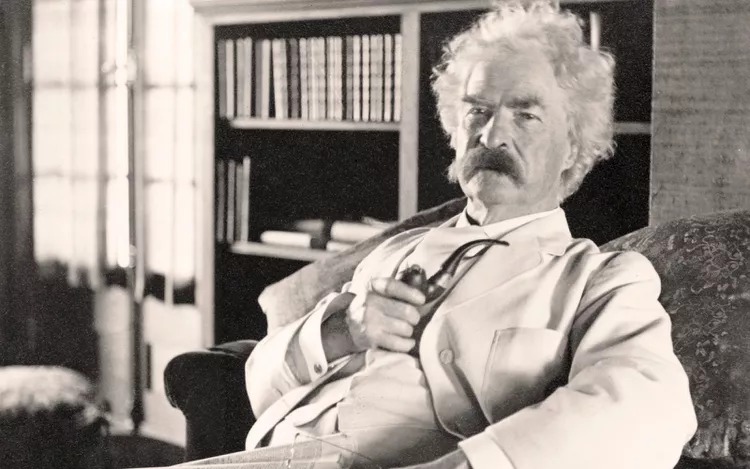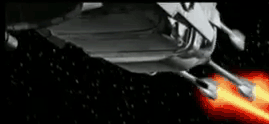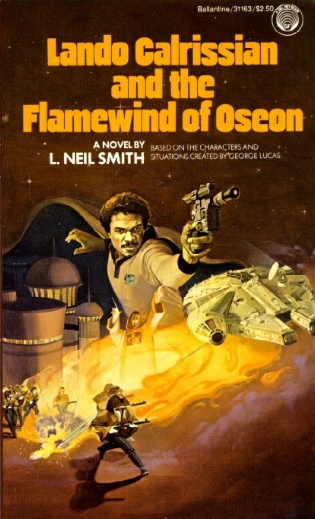As promised last night, I am continuing to follow that story about Disney refusing to pay Alan Dean Foster the royalties he is contractually owed for several novelizations of popular films, including Star Wars. Here is the text of the letter that Foster wrote to the corporate overlords (addressed with tongue in cheek to “Mickey” — as in Mickey Mouse — because he’s been unable to even learn the name of someone he could speak with):
Dear Mickey,
We have a lot in common, you and I. We share a birthday: November 18. My dad’s nickname was Mickey. There’s more.
When you purchased Lucasfilm, you acquired the rights to some books I wrote. STAR WARS, the novelization of the very first film. SPLINTER OF THE MIND’S EYE, the first sequel novel. You owe me royalties on these books. You stopped paying them.
When you purchased 20th Century Fox, you eventually acquired the rights to other books I had written. The novelizations of ALIEN, ALIENS, and ALIEN 3. You’ve never paid royalties on any of these, or even issued royalty statements for them.
All these books are all still very much in print. They still earn money. For you. When one company buys another, they acquire its liabilities as well as its assets. You’re certainly reaping the benefits of the assets. I’d very much like my minuscule (though it’s not small to me) share.
You want me to sign an NDA (non-disclosure agreement) before even talking. I’ve signed a lot of NDAs in my 50-year career. Never once did anyone ever ask me to sign one prior to negotiations. For the obvious reason that once you sign, you can no longer talk about the matter at hand. Every one of my representatives in this matter, with many, many decades of experience in such business, echo my bewilderment.
You continue to ignore requests from my agents. You continue to ignore queries from SFWA, the Science Fiction and Fantasy Writers of America. You continue to ignore my legal representatives. I know this is what gargantuan corporations often do. Ignore requests and inquiries hoping the petitioner will simply go away. Or possibly die. But I’m still here, and I am still entitled to what you owe me. Including not to be ignored, just because I’m only one lone writer. How many other writers and artists out there are you similarly ignoring?
My wife has serious medical issues and, in 2016, I was diagnosed with an advanced form of cancer. We could use the money. Not charity: just what I’m owed. I’ve always loved Disney. The films, the parks, growing up with the Disneyland TV show. I don’t think Unca Walt would approve of how you are currently treating me. Maybe someone in the right position just hasn’t received the word, though after all these months of ignored requests and queries, that’s hard to countenance. Or as a guy named Bob Iger said….
“The way you do anything is the way you do everything.”
I’m not feeling it.
Alan Dean Foster
Prescott, AZ
Disney is evidently hoping to outlast him and anyone else who has a complaint. They have nearly infinite resources to pay for lawyers, whereas a working writer or artist… does not. So they figure they can just stonewall until the plaintiff runs out of cash, loses interest… or in Foster’s case, quite possibly, dies. It’s the same tactic Donald Trump has historically employed to screw over honest contractors who were dumb enough to take jobs for him. It’s appalling, it’s immoral, it’s sleazy… let’s be frank, it’s evil.
And Mary Robinette Kowal, the president of SFWA, has pointed out that there’s a much larger concern here beyond one artist getting screwed:
If we let this stand, it could set precedent to fundamentally alter the way copyright and contracts operate in the United States. All a publisher would have to do to break a contract would be to sell it to a sibling company.
There does seem to be a growing outcry over this, from Star Wars fans and other authors alike, including heavyweights like Neil Gaiman, Cory Doctorow and John Scalzi. Will it be enough to sway the evil Mouse empire? Who knows… but this is not a good look for them.
You know, I’ve had a lot of long dark nights of the soul over how my life turned out… my failure to make my dream of becoming a novelist come true. There are a lot of reasons why it didn’t happen, some within my control, some without. The biggest one is that I just… got busy. As lame and unsatisfying as that sounds, it’s true. Life happened. And I have flagellated myself endlessly over it, just certain that my failure was the result of a character flaw… that I was too lazy, too easily distracted, too… I don’t know… too weak to put my nose to the grindstone. I have imagined that there’s an alternate-universe me who somehow got it right and lives that fabulous life I’ve always dreamed of, who writes and does book tours for six or eight months of the year and then travels the rest of the time. (Something like I’ve always imagined Alan Dean Foster, a well-known world traveler, does.) I still long to live that life, or at least to write a single book, just to say I did it.
Except… in recent years, as the relentless march of digital technology has gutted traditional publishing and I’ve gotten to know some real writers and seen just how damn hard it really is… I don’t know anymore that I want to write as a career. The writing part, the actual work of putting words to paper, is the easy bit. The rest is marketing, and the industry around that is cutthroat and only getting worse, and the odds of any actually making a living as a writer are getting smaller all the time. Maybe I’m only telling myself that to console myself; maybe it’s a classic case of sour grapes. But I don’t think so. I do still hope to write that novel, at least one novel, some day. But an industry that functions like publishing apparently does today, where a massive conglomerate like Disney that has more money than god can nevertheless contrive to pinch pennies owed to a man with 50 years of success under his belt, pennies that they wouldn’t even freaking miss… do I really want to be part of that? Why would anybody want to be part of that?
Source for the quotations above.








